2 – Endogenous Preferences and Private Provision of Public Goods: a ‘Double Critical Mass’ Model
Abstract
In this paper we set up an evolutionary game-theoretic model aimed at addressing the issue of local public good provision via direct commitment of voluntary forces (namely, private donors and nonprofit providers) only. Two classes of agents are assumed to strategically interact within a ‘double critical mass’ model, where the provision and maintenance, on voluntary bases, of a public-type good is concerned. Uncertainty as to equilibrium outcomes emerges as within both categories a positive proportion of agents faces the temptation to opportunistically free ride on others’ efforts. Further, private donors and nonprofit providers’ payoff functions are interdependent, in the sense that (a) potential donors decide to be actual donors only insofar as a ‘large enough’ proportion of nonprofit organizations provides a high effort level, otherwise they act as free riders; (b) nonprofit organizations, in turn, prefer to exert a high productive effort only insofar as a ‘large enough’ proportion of potential donors acts as actual donors, otherwise they exert a low effort level.
Through this analytical framework, we are able to focus on the critical factors affecting the dynamic outcome of such interaction: under certain conditions, in a medium-long run perspective, even in contexts where, initially, either a large proportion of agents behaves as free riders or a large proportion of nonprofit organizations exerts a low effort level, the local public good may be provided.

